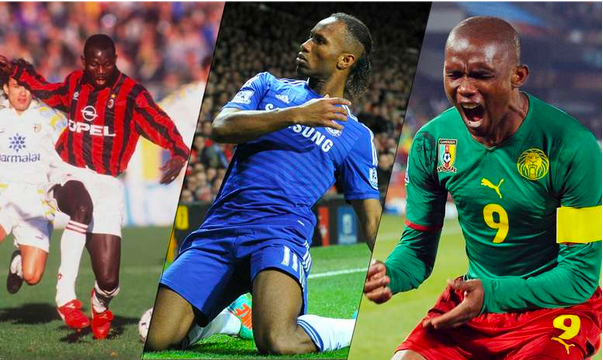African soccer, with its rich tapestry of cultures, talent, and passion, has given the world moments that are etched in history. But with the highs come the lows, and sometimes, the line between the two is blurred by controversy. This piece dives deep into specific debated moments that have left fans, players, and officials across the continent in heated discussions.
The Goal the World Still Questions
In soccer matches, the objective is clear: score more goals than the opponent. But what happens when the legitimacy of a soccer goal is questioned?
The 1988 AFCON match between Morocco and Malawi remains a contentious point in African soccer history. In the dying minutes of the game, Morocco’s striker launched a powerful shot that ricocheted off the crossbar. While the Moroccan players celebrated, believing the soccer ball had crossed the line, the Malawian players protested vehemently. Replays were inconclusive from certain angles, and without the technology like VAR that we have today, the referee’s decision stood. This goal allowed Morocco to advance to the next round, leaving Malawi and their fans feeling aggrieved.
Such moments highlight the game’s unpredictability and the emotional roller-coaster it can be for fans. They underscore the importance of clear officiating and the need for technological interventions in the sport.
The Red Card That Silenced a Continent
A red card can dramatically shift the momentum of a match. But when the validity of that card is debated, it becomes more than just a game moment.
The 1992 AFCON semi-final between Ghana and Nigeria was poised on a knife-edge. With both teams vying for a spot in the final, tensions were high. Ghana’s talisman, Abedi Pele, known for his skillful dribbling, was on a promising run when he was tackled by a Nigerian defender. The referee, deeming the tackle as a dive by Pele, showed him a second yellow card, resulting in a red. Replays showed there was contact, and many believed Pele was unjustly sent off. This decision significantly impacted the game’s dynamics, with Ghana playing with ten men for a significant portion of the soccer match.
Contentious red cards don’t just impact the game’s outcome; they raise questions about refereeing standards, consistency in decision-making, and the balance between maintaining discipline and ensuring a fair contest. Such moments also highlight the thrill of in-play betting, where every decision can drastically alter the soccer odds and potential outcomes.
The Penalty Whistle Heard Across Africa
Penalties in soccer are one of the sport’s ultimate tests of nerve. But when decisions during shootouts are debated, they become moments of intense scrutiny.
The 1996 AFCON showdown between South Africa and Tunisia was intensely close, as neither team managed to secure a lead during regular and additional time. The game inevitably moved to a penalty shootout. When it was Tunisia’s turn for their third penalty, their player took the shot with assurance, sending the ball towards the goal. However, the referee ordered a retake, citing goalkeeper movement before the ball was struck. The Tunisian player missed the subsequent attempt. Fans and pundits debated the decision, with many feeling it was an overly strict interpretation of the rules, especially given the high stakes of the moment.
Controversial decisions during penalties magnify the inherent unpredictability of soccer. Such moments, where outcomes hang in the balance, captivate fans and bettors alike, emphasising the game’s delicate interplay of strategy, skill, and chance. Soccer enthusiasts look to capitalise on these dynamic scenarios by placing bets on South African betting sites like Easybet with competitive soccer betting odds and a R50 Sign Up Welcome Bonus.
Conclusion
African soccer, with its moments of brilliance and controversy, serves as a mirror to the continent’s heartbeat. These debated moments, whether they lead to joy or despair, are a testament to the sport’s power to evoke strong emotions. They serve as a reminder that in soccer, the line between glory and controversy is often razor-thin.
